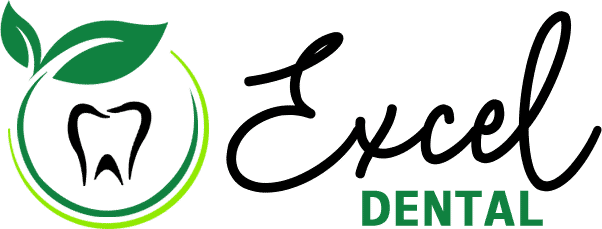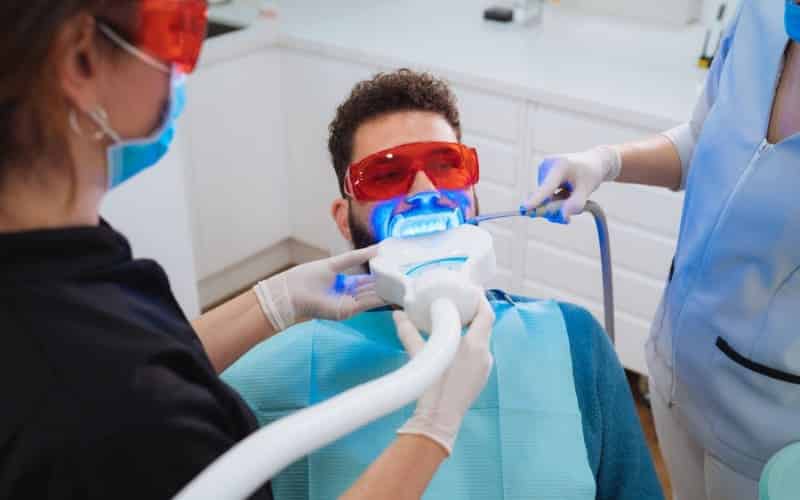Introduction
Laser dentistry, a cutting-edge dental technology, has revolutionized dental care recently. Many people wonder if laser dentistry is truly good for their teeth.
In this blog, we will explore the various aspects of laser dentistry and its benefits, helping you make an informed decision regarding your dental health.
Missouri City Dentist – Excel Dental offers a comprehensive range of dental services, including laser dentistry, which can enhance the quality of your dental care.
What is Laser Dentistry?
As the name suggests, laser dentistry uses technology in various dental procedures. It has gained popularity due to its precision and effectiveness in treating various dental issues.
Dental lasers emit highly concentrated light beams, which can be adjusted for different purposes. These lasers are used for soft and hard tissue treatments, making them a versatile tool in modern dentistry.
Different Types of Dental Lasers
There are several types of dental lasers, each designed for specific dental procedures:
1. Hard Tissue Lasers:
These lasers are utilized for operations on teeth and bones. Hard tissue lasers are often used for cavity detection, dental fillings, and teeth whitening.
2. Soft Tissue Lasers:
Soft tissue lasers are designed for gums and other oral soft tissues. They are commonly employed in gum reshaping, treating gum disease, and even removing oral lesions.
3. Diode Lasers:
Diode lasers are versatile and used for various procedures, including soft tissue applications and teeth whitening.
4. Erbium Lasers:
Erbium lasers are primarily used for hard tissue procedures and are excellent for precise tooth preparation.
5. CO2 Lasers:
CO2 lasers are highly efficient in soft tissue procedures and can help reduce bleeding and promote faster healing.
Is Laser Dentistry Good for Teeth?
The effectiveness depends on the specific dental issue being treated. Here are some scenarios:
1. Cavity Detection:
Laser technology can help detect cavities in their early stages. This means smaller fillings and less damage to your natural tooth structure.
2. Dental Fillings:
Hard tissue lasers can precisely remove the decayed portions of your tooth, making the process more comfortable and minimizing the need for anesthesia.
3. Gum Disease Treatment:
Soft tissue lasers can target and eliminate the bacteria causing gum disease and help reshape gum tissue.
4. Teeth Whitening:
Laser-assisted teeth whitening procedures can give you a brighter smile in less time.
5. Oral Lesion Removal:
Laser dentistry effectively removes benign oral lesions and reduces post-operative Discomfort.
6. Root Canal Therapy:
During root canal procedures, lasers can disinfect and reshape the root canals.
Advantages of Laser Dentistry for Teeth
Laser dentistry offers several benefits for patients, including:
1. Minimized Discomfort:
Laser procedures are often less painful than traditional methods, reducing the need for anesthesia and post-operative pain.
2. Faster Healing:
Due to the precision of lasers, the healing process is often quicker, with less tissue damage.
3. Reduced Swelling and Bleeding:
Lasers cauterize blood vessels and reduce bleeding, making the process less invasive.
4. Enhanced Precision:
Dentists can target specific areas more accurately, preserving healthy tissue.
5. Minimized Risk of Infection:
Laser procedures are typically more sterile, lowering the risk of infection.
6. Improved Patient Comfort:
The reduced noise and vibration of lasers make the patient experience more comfortable.
Safety Concerns Regarding Laser Dentistry
While laser dentistry is generally safe, there are some safety concerns to consider:
1. Eye Protection:
The dentist and the patient must wear appropriate eye protection to prevent accidental exposure to the laser.
2. Tissue Damage:
Lasers can potentially damage healthy tissue in inexperienced hands, so choosing a skilled and qualified dentist is crucial.
3. Not Suitable for All Procedures:
Laser dentistry may not suit all dental procedures, so your dentist will assess your needs.
4. Cost:
Laser technology can be more expensive, which might affect the cost of your dental treatment.
In conclusion, laser dentistry has significantly improved dental care, offering numerous benefits to patients. The key to harnessing the advantages is to choose a reputable and experienced provider, like Missouri City Dentist – Excel Dental, who can accurately assess your needs and recommend the best treatment option. Book your appointment with us!
While laser dentistry may not be suitable for all situations, it has undoubtedly improved the comfort, precision, and overall quality of dental care. So, if you want to enhance your dental experience and maintain a healthy smile, consider the advantages of the laser.
You can also read our other article, Laser Dentistry: The Future Of Dental Care Unveiled.

